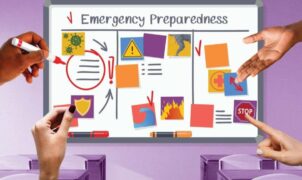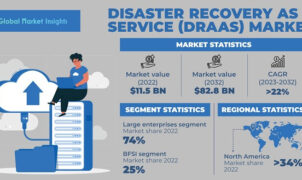
In today’s bustling world, selecting the right plumbing service nearby is crucial for maintaining a well-functioning home or business. Plumbing issues can arise unexpectedly, ranging from minor leaks to major pipe bursts, and having a reliable plumbing service on call is essential. Choosing the best plumbing service can be a daunting task, but with a few essential tips, it becomes easier to make an informed decision.
1- Research Local Options:
When embarking on the journey to find the right plumbing service nearby, conducting thorough research is the initial and pivotal step. This phase involves exploring available plumbing services within your locality through various channels to compile a comprehensive list of potential options.
Importance of Research:
- Local Availability: Start by identifying plumbing services operating within your area. Look for companies that have a physical presence or offer services in your neighborhood, ensuring prompt response times and convenience.
- Diverse Information Sources: Utilize multiple information sources for research. Online platforms, such as search engines, review websites, and social media, provide insights into various service providers and customer feedback, aiding in decision-making.
- Recommendations and Referrals: Seek recommendations and referrals from friends, family, neighbors, or colleagues who have had positive experiences with local plumbing services. Personal referrals often offer reliable insights into the quality of service provided.
Research Strategies:
- Online Searches: Use search engines to find local plumbing services. Incorporate specific location-based keywords to refine search results, such as “plumbing service near me” or including your city or neighborhood name.
- Review Websites and Platforms: Explore review websites like Yelp, Google Reviews, or Angie’s List to read customer reviews and ratings. Focus on companies with consistently positive reviews and high ratings for reliability and service quality.
- Company Websites and Portfolios: Visit the websites of prospective plumbing services. Look for information about their services, areas served, certifications, and any notable projects or testimonials that highlight their expertise.
- Local Directories and Community Forums: Check local directories or community forums where residents discuss service experiences. Participation in local forums can provide valuable insights and recommendations.
Considerations in Research:
- Service Coverage Area: Ensure that the plumbing service operates within or near your locality. Companies closer to your area can offer quicker response times in case of emergencies.
- Reputation and Reliability: Focus on companies with a strong reputation for reliability, professionalism, and quality service. Consistently positive reviews and testimonials reflect a service provider’s credibility.
- Qualifications and Credentials: Verify the qualifications, certifications, and licenses held by the plumbing services. Accredited and licensed plumbers ensure adherence to industry standards and regulations.
- Response Time and Availability: Assess the responsiveness and availability of the service providers. Choose companies that offer prompt responses and emergency services round the clock.
Researching local plumbing options involves utilizing diverse information sources to compile a list of reputable and reliable service providers within your vicinity. This research phase lays the foundation for making an informed decision when selecting the right plumbing service nearby.
2- Check for Licensing and Insurance:
Verifying the licensing and insurance credentials of a plumbing service is crucial when considering a service provider. This step ensures that the company meets the necessary legal requirements and provides protection for both the service provider and the clients.
Importance of Licensing and Insurance:
- Compliance with Regulations: Proper licensing demonstrates that the plumbing service complies with state or local regulations. It ensures that the company adheres to industry standards, codes, and safety practices.
- Professionalism and Credibility: A licensed plumbing service indicates professionalism and credibility. It reflects the company’s commitment to quality and proficiency in delivering plumbing services.
- Client Protection: Insurance coverage protects both the service provider and clients in case of accidents, damages, or injuries during the plumbing work. It provides peace of mind and financial security.
Verification Process:
- Licensing Verification: Check the licensing requirements in your area and verify if the plumbing service holds the necessary licenses. This information can usually be found on the service provider’s website or by contacting relevant local authorities.
- Insurance Coverage: Ensure that the plumbing service carries adequate insurance coverage, including liability insurance and worker’s compensation. Request proof of insurance and verify its validity.
- License Number and Credentials: Ask the plumbing service for their license number and credentials. Cross-check this information with local licensing boards or online databases to confirm its authenticity.
- Types of Insurance Coverage: Understand the types of insurance coverage the plumbing service carries. Liability insurance covers property damage or accidents, while worker’s compensation covers injuries to employees.
Considerations in Verification:
- Up-to-Date Licensing: Ensure that the plumbing service’s licenses are current and up-to-date. Expired licenses or lack of proper licensing could indicate non-compliance or inadequate qualifications.
- Insurance Validity: Verify the validity and coverage limits of the insurance policies. Confirm that the insurance policies are active and provide adequate protection for both parties involved.
- Scope of Coverage: Assess the scope of insurance coverage to ensure it encompasses various potential risks associated with plumbing work, such as property damage or workplace injuries.
- Local Regulations: Familiarize yourself with specific licensing and insurance requirements mandated by your local authorities to ensure the plumbing service meets these standards.
Verifying the licensing and insurance of a plumbing service is crucial for ensuring compliance, professionalism, and protection for both the service provider and clients during plumbing-related activities.

3- Experience and Expertise:
Assessing the experience and expertise of a plumbing service is vital in determining their capability to handle various plumbing issues effectively. This section emphasizes the significance of a service provider’s track record, skills, and proficiency in delivering quality plumbing services.
Importance of Experience and Expertise:
- Versatility in Problem-Solving: Experienced plumbers possess a diverse skill set and knowledge gained from handling various plumbing issues over time. They can effectively diagnose and address a wide range of problems efficiently.
- Quality Workmanship: Years of experience often correlate with higher-quality workmanship. An experienced plumbing service is more likely to deliver superior results, ensuring long-lasting solutions and fewer recurring issues.
- Adaptability to Challenges: Plumbing systems can be complex, and experienced professionals are adept at adapting to unforeseen challenges or unique situations, providing innovative solutions.
Evaluating Experience and Expertise:
- Company’s Years in Business: Inquire about the plumbing service’s years of operation in the industry. Longevity in the business often signifies stability, reliability, and continued customer satisfaction.
- Technician Qualifications: Assess the qualifications and certifications of the plumbing technicians. Look for certifications from reputable organizations or trade associations indicating specialized training and expertise.
- Past Projects and Case Studies: Review the company’s portfolio or inquire about past projects and case studies. This provides insight into their experience with various plumbing issues and their ability to handle complex tasks.
- Customer Testimonials and Referrals: Seek customer testimonials or referrals to gauge satisfaction levels and the service provider’s reputation. Positive reviews from previous clients reflect the service quality and reliability.
Considerations in Evaluation:
- Depth of Experience: Assess not only the number of years but also the depth and diversity of experience. Experience dealing with a wide array of plumbing problems is indicative of a service provider’s capability.
- Specialization or Focus Areas: Determine if the plumbing service specializes in specific areas, such as residential, commercial, or specialized plumbing systems. Choose a service aligned with your specific needs.
- Continuous Training and Education: Inquire about the service provider’s commitment to ongoing training and education for their technicians. A dedication to staying updated with industry advancements ensures top-notch service.
- Track Record of Success: Evaluate the service provider’s track record by checking reviews, ratings, or testimonials. Consistent positive feedback and successful past projects indicate reliability and quality.
Evaluating the experience and expertise of a plumbing service involves assessing their track record, technical skills, qualifications, and adaptability to various plumbing challenges. Opting for a seasoned and skilled service provider increases the likelihood of receiving quality and reliable plumbing solutions.
4- Range of Services Offered:
Assessing the range of services provided is a critical aspect when selecting a plumbing service. This ensures that the service provider can handle diverse plumbing issues, from routine repairs to installations and maintenance.
Importance of Service Range:
- Meeting Diverse Needs: A plumbing service with a broad range of offerings can address various customer needs. This includes repairs, regular maintenance, and potentially emergency services.
- Time and Convenience Savings: Choosing a service that caters to multiple needs saves time and inconvenience when requiring repairs or maintenance for different plumbing systems.
- Comprehensive Service Assurance: A comprehensive service assists customers in addressing all plumbing issues in one place, providing convenience and reliability.
Evaluation of Service Range:
- Repairs and Maintenance: Ensure that the service provider offers routine repair and periodic maintenance for plumbing systems. This includes troubleshooting, fixing faults, and regular inspections.
- Installation and Replacement: Ensure that the service includes new installations and replacements for plumbing components such as pipes, toilets, bathtubs, faucets, etc.
- Handling Emergency Issues: Assess if the service covers emergency situations such as severe water leaks, blocked drains, or malfunctioning hot water systems.
- Specialized Services: Consider whether the provider offers specialized services like system upgrades, water-saving enhancements, or heating system repairs.
Considerations in Assessment:
- Diverse Service Range: Choosing a provider with a diverse range of services ensures they can meet any future needs you might have.
- Service Quality: Assess the quality of services provided, considering whether they offer high-quality and reliable services.
- Response Time: Consider the provider’s ability to respond promptly to urgent requests.
- Technology and Tools: Ensure the provider uses modern technology and tools to deliver high-quality and efficient services.
Choosing a plumbing service with an extensive service range is crucial to ensure you receive comprehensive, diverse, and reliable service for all your plumbing needs.

5- Response Time and Availability:
Evaluating a plumbing service’s response time and availability is crucial in ensuring prompt assistance during emergencies and timely solutions for routine plumbing needs. This section delves into the significance of a service provider’s ability to respond swiftly and their availability when needed.
Importance of Response Time and Availability:
- Emergency Situations: Quick response times are vital during plumbing emergencies such as burst pipes, severe leaks, or backed-up sewer systems. Immediate attention can prevent further damage.
- Preventive Maintenance: Timely availability for routine maintenance appointments ensures proactive measures are taken to prevent potential plumbing issues from escalating.
- Customer Convenience: A plumbing service that is readily available offers convenience to customers, accommodating their schedules and providing timely solutions.
Evaluating Response Time and Availability:
- Emergency Response Policies: Inquire about the service provider’s emergency response policies. Ask about their availability after hours, during weekends, and holidays for urgent situations.
- Average Response Time: Request information on their average response time for emergency calls. A faster response time indicates a more reliable and efficient service.
- Appointment Scheduling: Assess their flexibility in scheduling routine maintenance or non-emergency repair appointments. A service that offers convenient scheduling options adds to customer satisfaction.
- Communication Channels: Check the available communication channels for reaching out in emergencies. Ensure they have multiple contact methods like phone, email, or online chat for swift communication.
Considerations in Evaluation:
- 24/7 Availability: Choose a service that offers 24/7 availability for emergency situations, ensuring assistance whenever plumbing issues arise.
- Geographical Reach: Evaluate their service area to ensure coverage in your locality, enabling quick responses without prolonged waiting times.
- Past Customer Feedback: Check customer reviews or testimonials regarding their responsiveness and availability, providing insights into their reliability.
- Clear Communication: Opt for a service that communicates clearly about response times, available services, and procedures during emergencies.
Assessing a plumbing service’s response time and availability is crucial for timely resolution of plumbing emergencies and convenience in scheduling routine maintenance, ensuring a reliable and efficient service provider.
6- Transparent Pricing and Estimates:
Understanding a plumbing service’s pricing structure and receiving accurate estimates is crucial to avoid unexpected costs and ensure transparency in the service provided. This section emphasizes the significance of clear pricing information and reliable estimates.
Importance of Transparent Pricing:
- Budget Planning: Transparent pricing allows customers to plan their budget effectively by knowing the costs upfront without hidden charges or surprises.
- Avoiding Misunderstandings: Clearly defined pricing prevents misunderstandings or disputes between the service provider and the customer, establishing trust and credibility.
- Comparative Analysis: Transparent pricing enables customers to compare costs among different plumbing services, aiding in making informed decisions.
Evaluating Transparent Pricing and Estimates:
- Detailed Price Breakdown: Request a detailed breakdown of the service costs, including labor, materials, any additional charges, and taxes if applicable.
- Method of Pricing: Understand how the service provider prices their services – whether it’s based on hourly rates, flat fees, or a combination of both.
- Estimates Accuracy: Inquire about the accuracy of estimates provided. Reliable estimates are based on thorough assessments of the required work.
- Clarity in Additional Charges: Ask about any potential additional charges for unexpected circumstances or extra services to ensure complete cost transparency.
Considerations in Evaluation:
- Comparative Pricing: Compare pricing structures and estimates among different plumbing services to gauge competitiveness and value for money.
- Terms of Payment: Understand the payment terms and methods accepted by the plumbing service, ensuring they align with your preferences and convenience.
- Guarantees on Estimates: Check if the service provider stands by their estimates and guarantees the final cost to be close to the estimated amount unless there are unforeseen issues.
- Communication on Changes: Choose a service that communicates any changes in pricing or unexpected costs promptly and transparently before proceeding with the work.
Evaluating a plumbing service’s transparent pricing and estimates is vital in ensuring customers have clear insights into costs, minimizing surprises, and fostering trust between the service provider and the client.

7- Warranty and Guarantees:
Assessing the warranties and guarantees provided by a plumbing service is essential to ensure confidence in the quality of workmanship and materials used. This section highlights the importance of warranties and guarantees and their role in establishing trust between the service provider and the customer.
Importance of Warranty and Guarantees:
- Quality Assurance: Warranties and guarantees offer assurance of the service provider’s confidence in their workmanship and the quality of materials used.
- Customer Confidence: A warranty or guarantee gives customers peace of mind, assuring them that the service provider will rectify any issues arising from their work at no additional cost within a specified period.
- Long-Term Protection: Warranties provide long-term protection against potential defects or failures, saving costs on future repairs or replacements.
Evaluating Warranty and Guarantees:
- Duration of Warranty: Inquire about the duration of the warranty provided by the plumbing service for both labor and materials. Longer warranties often indicate the service provider’s confidence in their work.
- Terms and Conditions: Read and understand the terms and conditions of the warranty or guarantee, including any limitations or exclusions that may apply.
- Coverage Details: Clarify what aspects are covered under the warranty, such as specific repairs, replacements, or maintenance services.
- Guarantees on Work: Ensure the service provider guarantees the quality of their workmanship and commits to rectifying any issues within the warranty period.
Considerations in Evaluation:
- Clear Documentation: Choose a service provider that provides clear and detailed warranty documentation outlining what is covered and the procedures to claim warranty services.
- Reputation and Reliability: Consider the reputation of the service provider regarding honoring warranties and fulfilling guarantees based on reviews or referrals.
- Extension Options: Inquire about options to extend warranties or guarantees for an additional fee, providing extended protection beyond the standard period.
- Communication Channels: Ensure open communication channels for warranty claims and understand the process for making a claim if issues arise.
Evaluating warranties and guarantees is crucial in ensuring customers receive quality service and long-term protection, establishing trust and confidence between the plumbing service provider and the client.
8- References and Testimonials:
Evaluating references and testimonials is an essential step in assessing the credibility, reliability, and quality of services offered by a plumbing service provider. This section highlights the importance of references and testimonials and their role in forming trust between the service provider and potential clients.
Importance of References and Testimonials:
- Third-Party Validation: References and testimonials provide third-party validation of the service provider’s reliability and quality of work from previous clients.
- Insight into Service Quality: They offer insights into the experiences of past customers, helping potential clients understand the service provider’s strengths and areas of expertise.
- Trust Building: Positive references and testimonials build trust and confidence, reassuring potential clients about the service provider’s capabilities.
Evaluating References and Testimonials:
- Client References: Request references from the plumbing service provider. Contact these references to inquire about their experience, satisfaction level, and any concerns with the service provided.
- Online Reviews and Testimonials: Check online platforms, review websites, or social media for customer reviews and testimonials regarding the service provider. Focus on consistency in positive feedback.
- Case Studies or Portfolios: Review case studies or portfolios provided by the service provider showcasing their successful projects and customer testimonials, if available.
- Industry Recognition: Consider any industry awards, certifications, or affiliations received by the service provider, which can serve as endorsements of their expertise and reliability.
Considerations in Evaluation:
- Consistency in Feedback: Look for consistent positive feedback across different references and testimonials, indicating a pattern of reliable service provision.
- Specificity in Testimonials: Consider testimonials that are specific and detailed about the services provided, outcomes, and customer experiences, offering more credibility.
- Relevance to Your Needs: Seek references or testimonials related to services similar to what you require, ensuring relevance to your specific needs.
- Trustworthiness of Sources: Assess the credibility of the sources providing testimonials or references to ensure their reliability.
Evaluating references and testimonials provides valuable insights into the service provider’s track record, reliability, and customer satisfaction levels, aiding potential clients in making informed decisions and building trust with the plumbing service provider.

9- Communication and Professionalism:
Effective communication and professionalism are key factors in establishing a positive relationship between a plumbing service provider and their clients. This section highlights the importance of clear communication and professional conduct in delivering exceptional service.
Importance of Communication and Professionalism:
- Clear Understanding: Effective communication ensures a clear understanding of client needs, expectations, and the scope of work, reducing misunderstandings.
- Client Satisfaction: Professionalism in conduct and communication fosters a positive client experience, leading to higher satisfaction levels and trust in the service provider.
- Problem Resolution: Clear communication aids in addressing issues promptly and professionally, enhancing the service provider’s problem-solving capabilities.
Evaluating Communication and Professionalism:
- Initial Interaction: Assess the service provider’s initial communication—whether they promptly respond to inquiries, are courteous, and provide comprehensive information.
- Clarity in Explanations: Evaluate their ability to explain technical details in a clear, understandable manner without using jargon, ensuring clients comprehend the work being done.
- Response to Queries: Observe how they handle queries or concerns—whether they respond promptly, offer solutions, and maintain a respectful demeanor.
- Professional Appearance and Conduct: Consider their professionalism in appearance, punctuality, and conduct during appointments or service visits.
Considerations in Evaluation:
- Communication Channels: Evaluate the available communication channels—such as phone, email, or online chat—and their responsiveness across these platforms.
- Customer-Centric Approach: Assess their focus on meeting customer needs, listening actively, and adapting services to address specific client requirements.
- Follow-Up Procedures: Consider their approach to post-service follow-ups, seeking feedback, and addressing any additional concerns or queries.
- Conflict Resolution: Evaluate their approach to handling conflicts or dissatisfaction, focusing on resolving issues courteously and professionally.
Evaluating a plumbing service provider’s communication skills and professionalism is crucial for ensuring a positive client experience, clear understanding, and effective problem resolution, forming the basis for a strong client-service provider relationship.
10- Environmental Considerations:
Taking environmental factors into account is increasingly important in various industries, including plumbing services. This section emphasizes the significance of environmental awareness and practices within the plumbing service sector.
Importance of Environmental Considerations:
- Resource Conservation: Embracing eco-friendly practices in plumbing services contributes to conserving water and energy, reducing the environmental impact.
- Sustainability: Implementing sustainable solutions, such as using eco-friendly materials or recommending water-efficient fixtures, contributes to a more sustainable environment.
- Community Responsiveness: Reflecting environmental consciousness in business practices aligns with community values, enhancing the service provider’s reputation and social responsibility.
Evaluating Environmental Considerations:
- Green Practices: Inquire about the plumbing service provider’s green initiatives, such as using environmentally friendly products, recycling materials, or promoting water-saving techniques.
- Certifications and Compliance: Check if the service provider adheres to environmental standards or holds certifications for eco-friendly practices from recognized organizations.
- Recommendations for Efficiency: Assess whether the service provider recommends and implements energy-efficient or water-saving fixtures and systems for clients.
- Waste Management: Inquire about their waste management practices, including responsible disposal of materials and recycling measures.
Considerations in Evaluation:
- Evidence of Environmental Practices: Look for tangible evidence of their commitment to environmental practices, such as case studies or testimonials highlighting their eco-friendly initiatives.
- Partnerships or Affiliations: Consider partnerships or affiliations with environmental organizations or initiatives, showcasing a dedication to environmental causes.
- Educational Approach: Evaluate whether the service provider educates clients about environmentally friendly options, encouraging them to make eco-conscious choices.
- Continuous Improvement: Assess their commitment to continuous improvement in adopting new environmentally friendly technologies or methods within their services.
Considering environmental factors in plumbing services promotes sustainability, resource conservation, and community responsibility. Evaluating a plumbing service provider’s commitment to eco-friendly practices is vital for contributing to a greener future while receiving quality service.








 Welcome to LawyerNote, your premier destination for expert legal counsel tailored to your unique needs. At LawyerNote, we specialize in navigating the complexities of the legal system, offering comprehensive solutions to our valued clients. With a team of seasoned attorneys covering diverse fields including corporate law, family law, and criminal defense, we’re equipped to handle a wide spectrum of legal matters. Our unwavering commitment to excellence, integrity, and client satisfaction sets LawyerNote apart. Whether you’re grappling with a complex litigation case or seeking guidance on business transactions, LawyerNote is your trusted legal partner every step of the way.
Welcome to LawyerNote, your premier destination for expert legal counsel tailored to your unique needs. At LawyerNote, we specialize in navigating the complexities of the legal system, offering comprehensive solutions to our valued clients. With a team of seasoned attorneys covering diverse fields including corporate law, family law, and criminal defense, we’re equipped to handle a wide spectrum of legal matters. Our unwavering commitment to excellence, integrity, and client satisfaction sets LawyerNote apart. Whether you’re grappling with a complex litigation case or seeking guidance on business transactions, LawyerNote is your trusted legal partner every step of the way.




